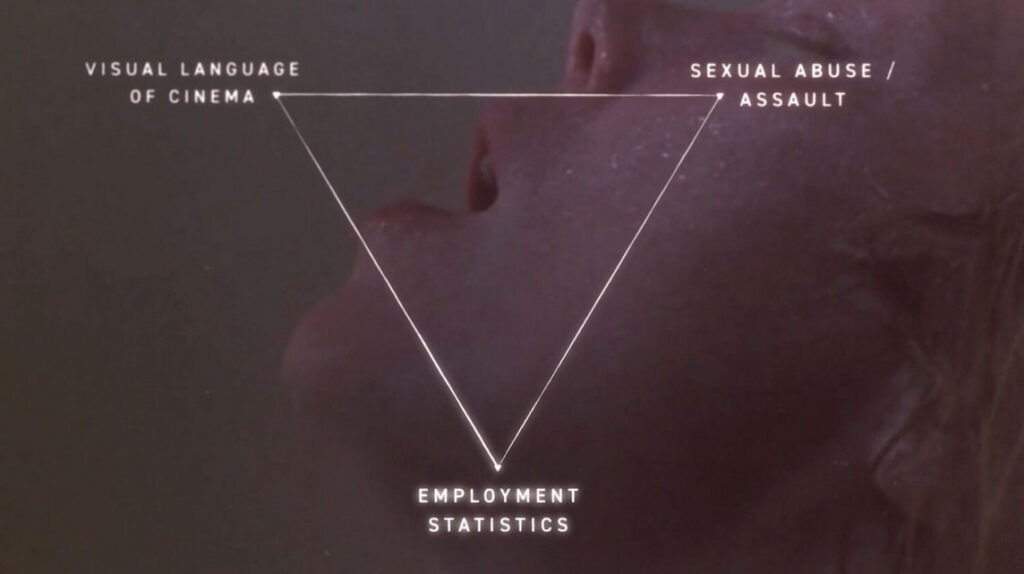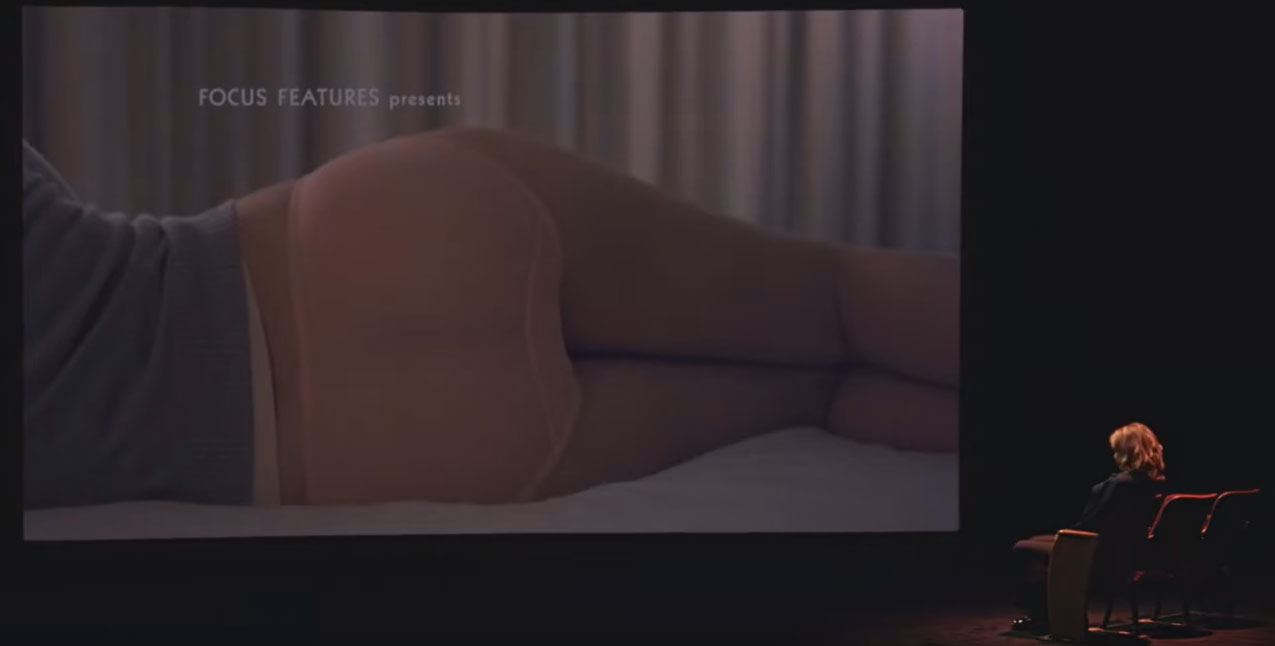Brainwashed: Sex – Camera – Power is a documentary by Nina Menkes that explores how shot design in mainstream cinema reinforces the male gaze and, ultimately, the patriarchy. Brainwashed uses hundreds of clips from well-known Hollywood films to show how female characters are consistently framed as the subject, via a male gaze.
The official Brainwashed website says “Shot design is gendered: Male and female actors are often shot completely differently. Check out the list below the next time you’re watching a movie. Even if there is a female lead character, she is often disempowered through shot design.” The site lists five different ways that female characters are depicted through the male gaze:
- Point of View. The camera assumes the male point of view and looks at the female character through their eyes
- Framing and Fragmented Body Parts. The camera often focuses on bits of a female character, not the whole person. We see boobs, butts, lips, bellies, all framed in a way that says “sexy”.
- Camera Movement. The camera moves in a way that infers a sexual or objectifying view – pans, tilts and slow motion
- Lighting (3D versus 2D). While men may be shot with lighting that shows their flaws or ways that illuminate their character, women are lit in a way to emphasize their beauty. It may mean that women appear “flatter” on screen.
- Narrative Position. The use of the previous techniques combine to undermine the female character’s position in the narrative.
The documentary also argues that the male gaze in cinema connects to how women are viewed in real life, with consequences for women’s employment. This then extends into viewing women in a predatory way, which leads to sexual assault and abuse.

The film features interviews with Laura Mulvey, who coined the term “the male gaze”, Joey Solway, director of Transparent, director Catherine Hardwicke and numerous other feminists and film critics. The film doesn’t feature many male directors, though not by design. Those contacted often said they were too busy.
Brainwashed makes use of plenty of films by male directors but doesn’t hold back from pointing out when a patriarchal male gaze appears in films by women. Sofia Coppola’s Lost in Translation and Julia Ducournau’s Titane are used as examples to show that it’s not necessarily the person behind the camera that is insisting on the gaze; it’s often part of the larger film industry and reflects “how things are done.”
In April 2022 this interview-style trailer went live on Youtube:
In an interview for The Guardian, Nina Menkes said: “I get letters every day from people around the world, saying, ‘Oh my God, thank you for making this’. But one woman told me, ‘You’ve ruined all my favourite films’.” Menkes says that the use of the male gaze in mainstream film is often ignored or glossed over. “These films that many people consider to be their favourites reinforce a way of seeing women that’s detrimental to our lives.”
The film premiered at the Sundance Film Festival in 2022 and has screened at numerous festivals around the world, receiving acclaim from critics. Peter Bradshaw in The Guardian wrote: “Brainwashed is a bracing blast of critical rigour, taking a clear, cool look at the unexamined assumptions behind what we see on the screen”. Bérénice Reynaud writes in Senses of Cinema: “Menkes circles around the disappointment, the sense of exclusion and of being denied as a human being, the pain and the anger experienced by a feminist filmmaker like her, and many women who share her emotions, when exposed to the mainstream language of cinema and the sexist way the film industry is run. She points at the thorny question and the contradiction that many of us have experienced: how can you love a film when you disagree with its sexual politics?”
Nina Menkes has been making films since 1983. She has a Master of Fine Arts from the University of California and has taught film studies at several universities in California. Many of her films were made in collaboration with her sister, Tina Menkes. Two of her films—Magdalena Viraga and Queen of Diamonds—have been preserved by the Academy Film Archive. Brainwashed grew out of a spoken presentation called Sex and Power, the Visual Language of Oppression, which she gave at the Cannes and Sundance festivals in 2018.
Here’s the official site of Brainwashed: Sex – Camera – Power.
